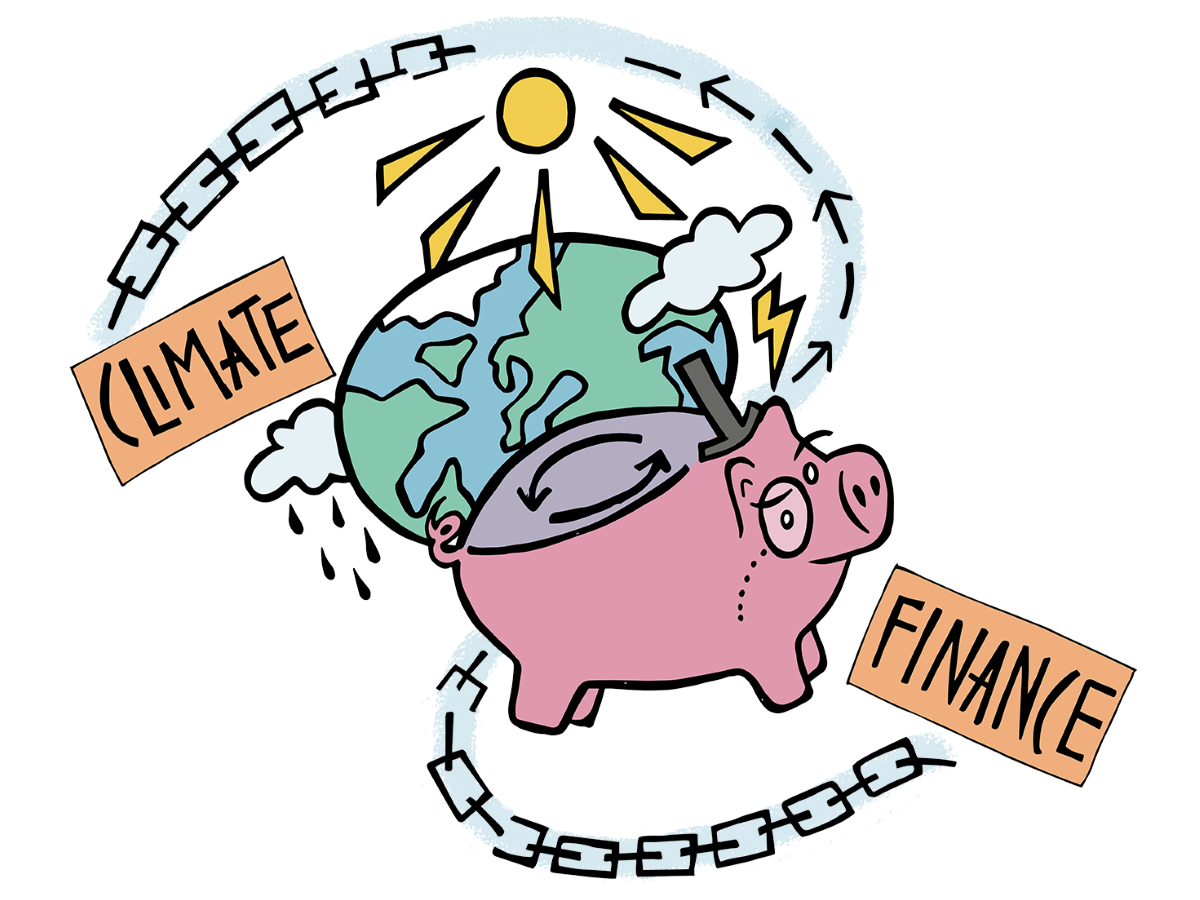Visions for a zero carbon economy from two generations of climate activists
Jamie Margolin and Ann Pettifor share their motivations for fighting climate chaos
20 September 2019
The climate crisis has been forced back on to the front pages by Greta Thunberg and the climate school strikers. In the upcoming first issue of the New Economics Zine, Jamie Margolin, a teenage climate activist, and Ann Pettifor, a seasoned economist and member of the original Green New Deal group, share their motivations for fighting climate chaos and their visions for a zero carbon economy. Here are extracts from the pieces and a link to an exclusive first look at an interview between the two authors.

Jamie Margolin: Be your own superhero
Like many climate strikers Jamie Margolin, founder of the youth climate organisation Zero Hour, was driven to action by the idea that the world would be ending when her life was just beginning. Here she talks about the massive economic transformation that must take place to tackle this crisis
I fight for climate justice because my generation’s life depends on it. I fight for climate justice because I have no other option.
If you were watching a movie, and all of the characters in it knew there were only 10 years left to save the world, but they continued going on with their lives as if nothing was happening you would yell at the screen, right? I would.
We on planet earth are living out that movie. Climate change and environmental destruction are quite literally ending the world — and the United Nations has made it crystal clear through years of extensive scientific research that we have a maximum of 10 years left in order to turn the tides on the climate crisis and save humanity and every creature we share this once-blue earth with.
So how does this massive economic transformation happen? I have a few ideas.
We need to stop the exploitation of workers. The way corporations are exploiting workers is the way that they exploit the planet. So transitioning into an economy where the minimum wage is actually a living wage, and there is a corporate culture of taking care of each other instead of using each other to crawl to the top.
And we need to recognise that it’s not a matter of choosing between say, Black Lives Matter or climate justice. The two are intertwined. 69% of US coal plants are built in communities of colour. 20,000 people die from air pollution alone each year in the US, and the majority of those people are people of colour. That’s not a coincidence.
So let’s fight this crisis like we’re the heroes in a dystopian movie trying to stop the world from ending before it’s too late. Because that’s exactly what we are.
Jamie Margolin is a climate change activist. She founded the youth climate action organisation Zero Hour when she was 15 and serves as co-executive director.

Ann Pettifor: Cathedral thinking
In 2008, Ann Pettifor was part of the Green New Deal group that called for a government intervention to tackle both the climate crisis and the financial crisis. Now, with the Green New Deal making waves in the UK and the US, she describes how we must escape from the control of the financial universe if we want to create a system based on economic and ecological justice.
“Avoiding climate breakdown will require cathedral thinking. We must lay the foundation while we may not know how to build the ceiling.” So said Greta Thunberg in a speech to the British Parliament in April of this year.
The Green New Deal is cathedral thinking. It is an ambitious plan. One that demands major system change: both economic and ecological. It is a plan that requires structural changes to the globalised economy, not just behavioural, community or technological change. The Green New Deal calls for system change: radical change across sectors and at a global and national level; change that involves state action.
The Green New Deal was developed in Britain in 2008 by a group of environmentalists and economists of which I was proud to be a member. It was written on the understanding that finance, the economy and the ecosystem are all tightly bound together. The Green New Deal group, argued that protecting and restoring the ecosystem to balance cannot be undertaken effectively without the transformation of the other sectors. Joined-up policies are needed. Financing the hugely costly overhaul of the economy away from its dependence on fossil fuels cannot be achieved without the subordination of the globalised finance sector to the interests of society and the planet.
To transform the current economic and financial system we must ignore defeatists from across the political spectrum. We must understand how and why the system was transformed before (almost overnight), in order to be confident that it can be transformed again. That knowledge, that confidence, that cathedral thinking can and will empower millions of people, and drive action to save the planet.
Ann Pettifor is the director of PRIME (Policy Research In Macroeconomics) and a fellow of the New Economics Foundation. She is a political economist and the author of The Case for a Green New Deal.
This is an extract from the New Economics Zine issue 1. Read the full issue here
Image credit: Tamara-Jade Kaz
Topics Climate change Environment Zine







